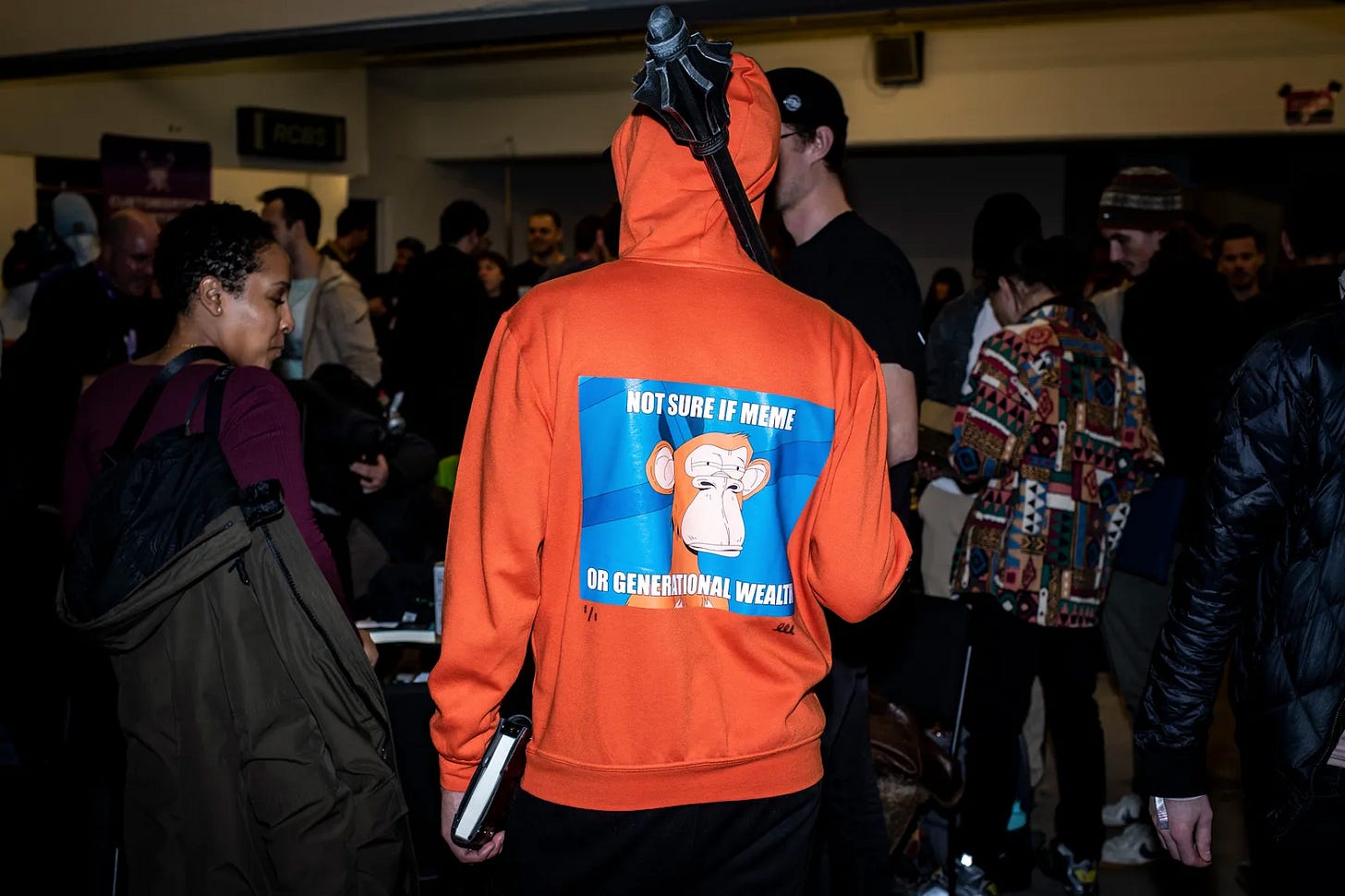Cultured is a newsletter by Otis that gets readers up to speed on the most interesting things going on at the intersection of finance, art, collectibles, NFTs, and more.
🚨 Some exciting news: Otis is joining Public.com! You can learn more here. Readers need not fret — Cultured will continue to hit your inbox 3x a week with the latest on collectibles and investing.
Love Cultured? Spread the word and share this newsletter with a friend!
🗞 STORIES OF THE DAY
Art Dubai opens this week with a focus on…crypto, duh
Dubai, the “city of the future,” is opening the 15th edition of the popular Art Dubai fair this weekend. For the first time, the fair will have a section dedicated to NFTs.
Art Dubai Digital will show blockchain projects by galleries and organizations like NFT curatorial platform MORROW Collective and Emergeast, an online gallery focusing on young artists from the MENA region.
Dubai has focused on becoming a hub for crypto businesses, enticing entrepreneurs and existing companies looking to launch their blockchain businesses. Boosting NFT sales is another part of that project.
Our Take: Smaller art hubs have turned to blockchain art to distinguish themselves from major markets like London and New York.
Art Dubai isn’t the first fair to turn to crypto — in December, Art Basel Miami was similarly focused on NFTs. Whereas Frieze London or The Armory Show in New York can easily attract visitors, smaller cities like Miami and Dubai need to have something distinctive. Crypto is trendy and popular with a large audience, making it an excellent tool for bringing in new guests.
LimeWire is returning, but instead of offering infected MP3s it’ll be an NFT marketplace
Remember LimeWire — the illegal music downloading app that infected your parents’ desktop? After a decade-long hiatus, LimeWire is back as a crypto music marketplace.
You won’t find ripped DJ Earworm remixes on the new LimeWire. Instead, its owners are positioning it as an alternative to Spotify or Apple Music, where creators can sell NFTs of their music and receive a larger portion of the proceeds.
The team behind New LimeWire aren’t related to the original crew — they just bought the name. Their goal is to benefit from nostalgia for OG LimeWire, while distancing the new product from the original’s penchant for piracy.
Our Take: LimeWire wants to use crypto to bring collecting back to the music industry.
For decades, collecting was a huge part of music — your parents probably still have their record collection at home. The digitization of music made it much more difficult to actually collect music. Music companies still put out collectible records, but they have a fairly niche audience. By latching onto the popularity of digital collectibles like NFTs, the new company hopes to reintroduce music lovers to collecting.
✨ AROUND THE INTERNET
CGC Trading Cards has redone its grading workflow, which allowed it to cut its turnaround time to just 15 days for its standard service.
A bunch of new DAOs and NFT projects run by women and members of the LGBTQ+ community have launched for Women’s History Month.
How do art galleries in the metaverse rank? Dazed has a review
An NFT version of a 1952 Mickey Mantle baseball card sold for $471,000 on OpenSea.
What does a party for Ethereum devotees look like? At ETHDenver, the utopian vision is clear.





Let’s bring back KaZaA